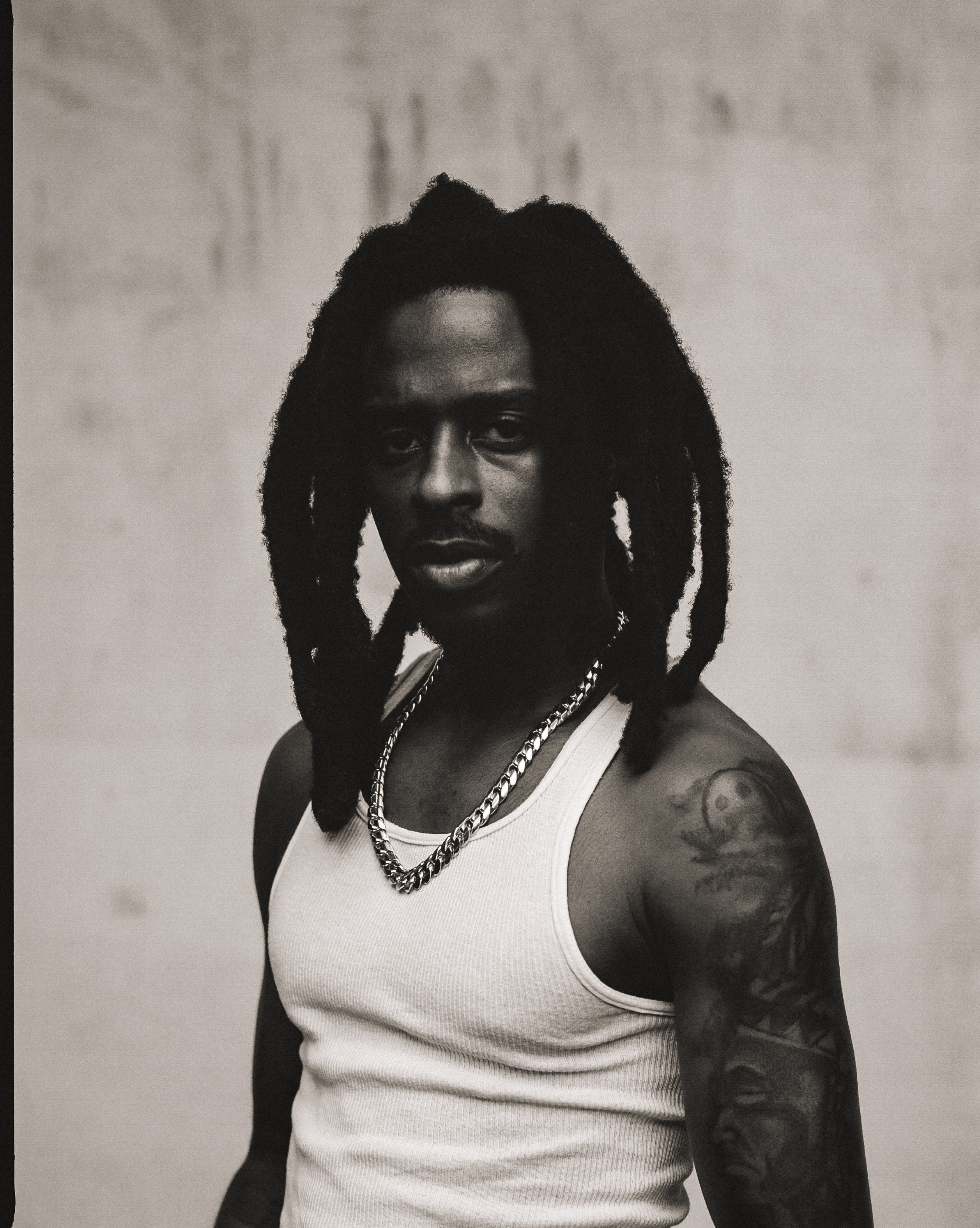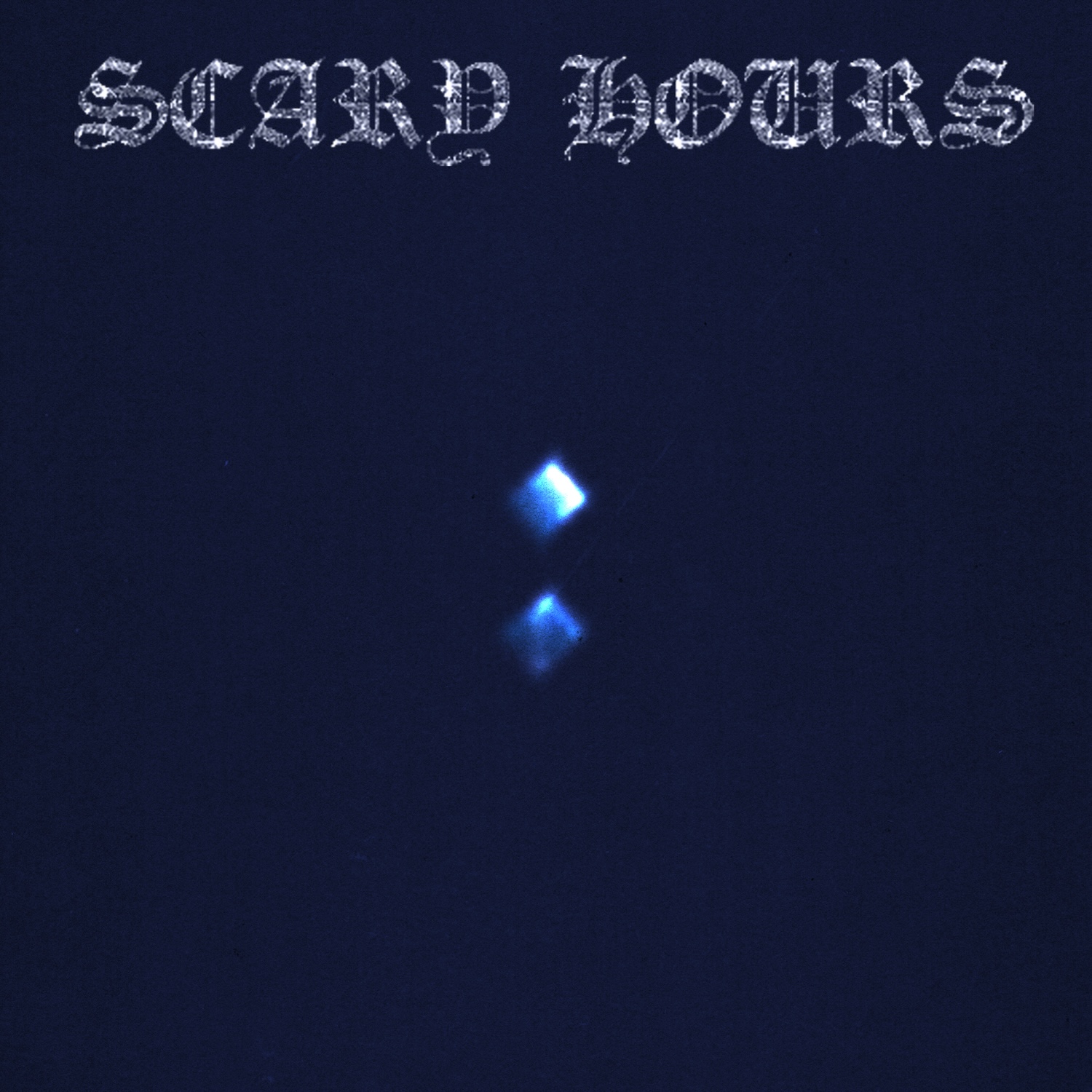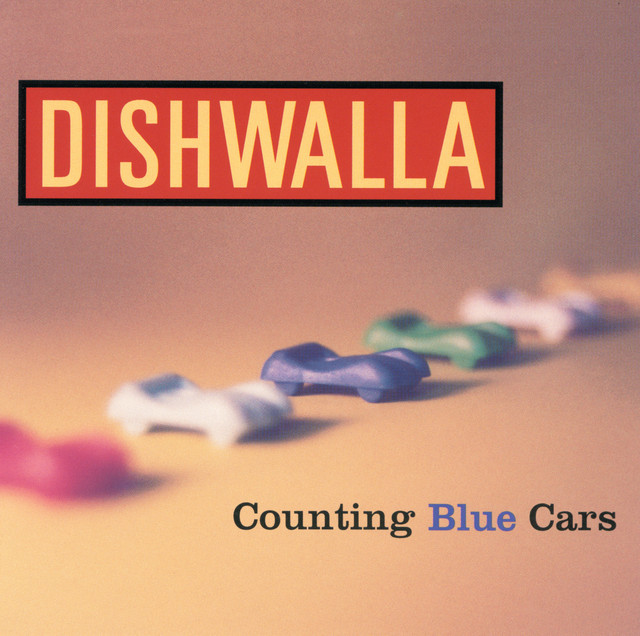Bassist Buell Neidlinger died last week at 82. He was a fascinating figure, who traveled back and forth between the out-est of out jazz and the smoothest pop music with ease. He might be best known to jazz fans for his creative relationship with Cecil Taylor in the late 1950s and early 1960s; the two of them play together on Taylor's albums Jazz Advance, Looking Ahead!, Love For Sale, The World Of Cecil Taylor, Air, Cell Walk For Celeste, and Jumpin' Punkins. (Another album, New York City R&B, was recorded under Neidlinger's leadership, but co-credited to Taylor upon release.) He also worked with soprano saxophonist Steve Lacy, clarinetist/saxophonist Jimmy Giuffre, and Anthony Braxton. He recorded a living-room jam session with saxophonist Charles Gayle in 1965(!), which went unreleased until it was rediscovered in the mid-2000s.
But in parallel to his avant-garde jazz work, which obviously never paid the bills, he was a studio musician with a long and wide-ranging career, frequently popping up in the string section on rock and pop records. He claims to have played on close to two dozen Barbra Streisand albums; he's on Roy Orbison's Mystery Girl, Elvis Costello's Spike, Frank Sinatra's Duets, Bob Seger's The Fire Inside, two Neil Diamond albums, and Earth, Wind & Fire's Faces, among others. There's a great interview with him on the All About Jazz website; it's full of the kind of self-aggrandizing BS and random conspiracy theories (Cecil Taylor's career hit a dead patch because the money people were all backing Ornette Coleman, stuff like that) that you only get from musicians with decades in the game. Check it out, because figures like Neidlinger don't exist anymore.
A lot of the people discussed in Valerie Wilmer's 1977 book As Serious As Your Life aren't around anymore, either, which is just one reason you should get your hands on a copy now that it's been reprinted by Serpent's Tail. The book's subtitle is Black Music And The Free Jazz Revolution, 1957-1977, and it offers a much broader portrait of the jazz scene of the time than other books, especially in the amount of space devoted to female artists like Amina Claudine Myers, Linda Sharrock, and Carla Bley. Wilmer also works hard to establish a social and political context for the music, but does so by letting the musicians speak for themselves. And as a bonus, the book is stuffed with Wilmer's superb photographs of its subjects. As Serious As Your Life -- the title phrase comes from McCoy Tyner -- is one of the most important and exciting books ever written about jazz. It's essential.
Last month I talked a little bit about the lineups at jazz festivals, and why they often suck. But now the lineup for this year's Vision Festival, which will be held at Roulette in Brooklyn from May 23-28, is out, and it's fantastic. It includes some of the bands whose debut albums made my Best Jazz of 2017 list -- Jaimie Branch's Fly Or Die, and Irreversible Entanglements -- and a bunch of other amazing events, including a whole evening of performances featuring legendary pianist Dave Burrell. Veterans like Archie Shepp, Charles Gayle, and Jemeel Moondoc will be performing, along with relative newcomers and new projects from folks like Mary Halvorson and Matt Shipp. Visit the festival's website for full details, and get there if you can -- it's gonna be great.
One final note: This essay by trombonist Kalia Vandever, about the sexism she encountered while studying at Juilliard, is depressing and infuriating ... and, frankly, disappointing. When I read it, my visceral response was "Come on -- aren't we ("we" being dudes) better than this shit by now?" None of the behavior she describes is predatory; it's all just fucking stupid, and brands the perpetrators as lame-ass motherfuckers I'd never want to work with in any capacity, especially not the bassist who thinks "rape" is a good word to use as an emotional cue for improvisation.
Oh, well. Here are the best new jazz albums of the month!
Archival Find Of The Month: Ornette Coleman, An Evening With Ornette Coleman Vol. 2 (ORG Music)
The two An Evening With Ornette Coleman albums, taken together, document an August 29, 1965 concert at Fairfield Hall in Croydon, England. The bulk of the performance was by Ornette's trio with bassist David Izenzon and drummer Charles Moffett, but that was preceded by the premiere of "Sounds And Forms For Wind Quintet," a 10-movement piece Coleman composed for flute, oboe, clarinet, horn, and bassoon. The first half of the concert was reissued by the ORG Music label, remastered from the original tapes, for Record Store Day 2016; the second half is being released this year. All of Ornette's music was ultimately rooted in the cry of the blues, as much because of his extraordinarily human, voicelike alto sound as because of the forms or rhythms he used, and "Happy Fool" is a bluesy and kind of mournful piece. Moffett's shuffling drums and Izenzon's bouncing bass attempt to inject lightheartedness into the music, but Ornette almost seems to be sobbing at times. It almost recalls the (in)famous 1946 Charlie Parker recording of "Lover Man," where he was so drunk (because he couldn't get the heroin he really needed) that producer Ross Russell physically propped him up near the microphone. Coleman, of course, was completely in control of his faculties on this recording, but the raw emotionalism the two tracks share is undeniable.
Stream "Happy Fool":
Dan Weiss, Starebaby (Pi Recordings)
This is inside baseball for music critics, but I feel like it bears mentioning: Pi Recordings mostly handles their own PR, or works with one of a few well-known jazz publicists, but when I got this album, it came from Earsplit PR, a firm that normally handles death metal, black metal, doom, grindcore…you get the idea. I think this might be the first jazz release they've ever worked. And listening to it, I get why. Several of the group members -- drummer Weiss, and keyboardists Craig Taborn and Matt Mitchell -- are avowed fans of underground and extreme metal. Bassist Trevor Dunn was a member of Fantômas, his label put out avant-metal nutjobs Cleric's latest album, and he works regularly with John Zorn. I don't know what guitarist Ben Monder listens to for fun, but he has a way with a distortion pedal. Musically, this isn't metal at all, though it has moments of extremely loud guitar; it's compositionally and atmospherically influenced by metal, though, as well as modern composition and movie and TV soundtracks (there's a track called "Badalamenti," as in Angelo, who works frequently with director David Lynch). Mitchell and Taborn switch between piano and Prophet synths, creating a retro horror movie mood -- Monder, Dunn and Weiss, meanwhile, create a doomy energy, sometimes akin to Khanate, other times to progressive death metal slowed down and stretched out, the rhythm distended until the space between the beats becomes almost a source of Lovecraftian anticipation. "Episode 8," the album's final track, is a 14-minute epic that sums up everything that's come before. It's the album in miniature. It kicks off with a drum solo, then leaps from drifting, dark ambient passages to frantic, staccato riff-fests and back around again; Monder takes a John McLaughlin-meets-Mick Barr solo; the synths are fierce and aggressive; and Weiss slams the kit harder than any jazz or fusion drummer this side of Billy Cobham. This is a thoroughly unique album that dwells outside the realms of both jazz and metal, and it'll take a while for everything the players are up to to sink in, but it's worth it.
Stream "Episode 8":
Wynton Marsalis Septet, United We Swing (Blue Engine)
Between 2003 and 2007, Jazz At Lincoln Center staged annual galas to raise money for the organization; the core band, led by Wynton Marsalis, was joined by a variety of singers from the worlds of rock, pop, country and gospel. This album gathers some of the best performances from those five years of shows, and there are some high-powered names present: Ray Charles, Bob Dylan, Willie Nelson, Eric Clapton, the Blind Boys of Alabama, John Mayer, John Legend, Natalie Merchant, Lyle Lovett, James Taylor, Audra McDonald, Carrie Smith, and, um, Jimmy Buffett and Lenny Kravitz all appear. Dylan's version of "It Takes A Lot To Laugh, It Takes A Train To Cry" is a terrific blues, while Lovett's version of "My Baby Don't Tolerate" recalls his work with his own Large Band. Susan Tedeschi and guitarist Derek Trucks turn up for a scorching version of the old gospel song "I Wish I Knew How It Would Feel To Be Free"; she's a powerful post-Bonnie Raitt singer, and hearing Trucks trade lines with the horns is pretty great.
Stream "I Wish I Knew How It Would Feel To Be Free":
Nubya Garcia, When We Are (Nyasha)
Saxophonist Nubya Garcia, who was heavily featured on the We Out Here compilation I wrote about in January's column, is back with a new EP under her own name. It may be just four tracks long -- two new songs, and two remixes of same -- but it's a keeper. Even the original material has a twitchy, high-energy groove that's better suited to a dance floor than a jazz club. (I interviewed Garcia and some other UK jazz musicians during Winter Jazzfest, and we discussed the idea of taking the tables and chairs out of jazz clubs -- everyone agreed that watching an audience shift and move to the music was vastly preferable to watching them sit there staring at you, politely nodding from time to time.) The band includes Joe Armon-Jones, who's got his own album coming out in May, on piano and Wurlitzer organ, Daniel Casimir on bass, and Femi Koleoso on drums. The K15 remix of "When We Are" takes the original's jumpy energy and brings it down through judicious deployment of reverb; the kick drum feels like the loudest element in the mix, but it's not booming, it's more like an insistent forefinger, tapping on the back of your brain. Garcia's solo, lifted out of the live band mix and recontextualized, has a floating quality that emphasizes the lower end of her range. When little programmed hi-hat skips start to enter, it's like hearing rain against the window. The handclaps are a nice touch, too.
Stream "When We Are (K15 Remix)":
Logan Richardson, Blues People (Ropeadope)
Alto saxophonist Logan Richardson has been around since the dawn of the 2000s, but he made a big splash in 2016 with his third album as a leader, Shift. The music was great, but the shock was the personnel: guitarist Pat Metheny, who never does sideman work, was there, along with pianist Jason Moran, bassist Harish Raghavan, and drummer Nasheet Waits. Richardson says Blues People is the second chapter, a sequel to Shift, even though it features none of the same personnel. This time out, he's joined by two very electric guitarists, Justus West and Igor Osypov, electric bassist DeAndre Manning, and drummer Ryan Lee, and the music is part jazz, part blues, part country, and part hard rock. On "Anthem (To Human Justice)," there's more guitar shredding than saxophone to be heard; the nominal leader stays relatively subdued, as his band kicks up a storm.
Stream "Anthem (To Human Justice)":
James Brandon Lewis/Chad Taylor, Radiant Imprints (Off)
Tenor saxophonist James Brandon Lewis is a player worth following. He made two albums for Sony's jazz imprint, OKeh, both very good but not super-commercial (one was a gospel-ish free jazz disc with William Parker on bass and Gerald Cleaver on drums, the other a strutting jazz-funk set with Jamaaladeen Tacuma and Rudy Royston) and has subsequently been bouncing from one small indie label to another. Radiant Imprints is a duo record with Chad Taylor, a drummer very comfortable in one-on-one settings -- he formed the Chicago Underground Duo with Rob Mazurek, after all. Their interplay is titanic at times, and Lewis is more than happy to stand back and let Taylor rampage all over the kit. But there's also a lot of meditative ballad material here, as well as some more exotic side trips. On "With Sorrow Lonnie," Taylor plays what sounds like a mbira (a small African thumb piano) as Lewis murmurs soft, mournful lines. It's a variation on John Coltrane's "Lonnie's Lament," from the amazing Crescent album, but they turn it into something all their own.
Stream "With Sorrow Lonnie":
Jeremy Pelt, Noir En Rouge: Live In Paris (HighNote)
Trumpeter Jeremy Pelt puts out an album a year, and everything he releases is worth your time. This one features the same band as his last disc, Make Noise!: pianist Victor Gould, bassist Vicente Archer, drummer Jonathan Barber, and percussionist Jacquelene Acevedo. It was recorded at the Sunset, a famous Paris nightclub, and includes three tunes from Make Noise!, alongside "Sir Carter," a piece by Gould from his 2016 album Clockwork, on which Pelt played. It's a speedy, hard bop-rooted tune that for obvious reasons (it's named in tribute to bassist Ron Carter) recalls the work of the mid '60s Miles Davis Quintet with Wayne Shorter, Herbie Hancock, Carter, and Tony Williams. Pelt is much more of a powerhouse trumpeter than Davis was, though -- he'd almost always rather shout than whisper, and he flies straight into the rafters, bolstered by the churning rhythm section, as Gould's piano spins out melodies like links in an endless silver chain.
Stream "Sir Carter":
Bobby Previte, Rhapsody (RareNoise)
Percussionist Bobby Previte has been up to some weird shit the last couple of years. His 2016 album Mass was an interpretation of Baroque composer Guillaume Du Fay's Missa Sancti Jacobi that featured guitar work from Sunn O)))'s Stephen O'Malley, and a choir. This record is scored for sextet, and played by alto saxophonist Fabian Rucker, guitarist Nels Cline, harpist Zeena Parkins, pianist John Medeski, and vocalist/erhu player Jen Shyu. For the first time in his career, Previte has written lyrics (for six of the nine pieces); they take air travel as the jumping-off point for a broader consideration of travel and how it changes us. On "The Timekeeper," Shyu's vocals are forceful and keening at once, but it's her erhu, balanced against Rucker's deep, low saxophone moans, that's the most fascinating element. Parkins' harp and Medeski's piano blend beautifully into one rippling, surging wave of sound.
Stream "The Timekeeper":
Fire!, The Hands (Rune Grammofon)
Mats Gustafsson's probably best known as a member of The Thing, but his other trio, Fire!, has recently released its sixth album, The Hands. As ever, they're a powerful and aggro unit: electric bassist Johan Berthling has a gigantic, distorted sound more reminiscent of bands like Helmet and Unsane than jazz of any sort, while drummer Andreas Werliin keeps up a steady, mechanistic pulse. On "Washing Your Heart In Filth," Berthling switches to upright, but loses none of his volume or power. Werliin tones down his approach to the kit, too, sounding almost like he's playing with his hands. Gustafsson, though, is totally unleashed, his tenor screaming out long wavering lines like someone's fired a nail through his foot mid-phrase. After a while, he too settles down, and the overall vibe becomes more trance-like, but the raw energy is always there, humming in the background like a machine warning you not to touch it.
Stream "Washing Your Heart In Filth":
Mopo, Mopocalypse (We Jazz)
Mopo's debut album is another excellent release from the Finnish We Jazz label. The group features Linda Fredriksson on alto and baritone saxophones; Eero Tikkanen on bass (upright and electric) and violin; and Eeti Nieminen on drums and synth. Otto Eskelinen plays Farfisa organ on some tracks. On the album cover, the three core members are seen on motorbikes in what looks like a quarry or something, and this is definitely music to carom around the woods to: it's loud and aggressive, with Nieminen's beats clattering and slamming as Tikkanen's bass bounces and throbs. Fredriksson's saxophone playing is fierce and intensely rhythmic, particularly on baritone. On "Riisto," she and Tikkanen switch back and forth in the spotlight, as Nieminen drives them onward. They do slow down for some nice, mellow choruses, though. Mopo's music is strongly reminiscent of The Thing's, with its muscular riffing and powerful bottom end, but they're doing something all their own.
Stream "Riisto":
Caroline Davis, Heart Tonic (Sunnyside)
Alto saxophonist Caroline Davis made her name as a composer and improviser in Chicago, but has now moved to New York. This album was inspired by her father's health problems, but you don't need to know that to enjoy it. The band includes trumpeter Marquis Hill, keyboardist Julian Shore, bassist Tamir Shmerling, and drummer Jay Sawyer, with percussionist Rogerio Boccato playing on two tracks and organist Benjamin Hoffman appearing on two more. "Footloose And Fancy Free," the album opener, has the feel of a '70s TV show theme; Shore's keyboards are straight out of Bob James (who did the music for Taxi), while Shmerling's electric bass has a thick bounce that recalls Barney Miller, and Sawyer's drums have a sharp, funky clack. Davis and Hill make a good front-line team; she claims that Steve Coleman was a major influence on her, and it's easy to hear -- her lines are long and meandering, seeming to flutter around the rhythm like a butterfly. The trumpeter plays it a little more straight, harmonizing with her but not attempting to match her acrobatics, and they lock in together seamlessly when the moment comes.
Stream "Footloose And Fancy Free":
Dafnis Prieto Big Band, Back To The Sunset (Dafnison Music)
Dafnis Prieto is a brilliant percussionist and composer who I've been checking out, in an "Oh yeah, that guy – he's awesome!" kind of way, every few years. This big band album (four trumpets, five saxophonists, four trombonists, piano, bass, drums and percussion) features special guests on three of its nine tracks: alto saxophonist Henry Threadgill and Steve Coleman, and trumpeter Brian Lynch, all show up. Lynch is heard on the album-opening "Una Vez Mas," which is dedicated to him, along with Tito Puente and Eddie Palmieri. So yeah, make no mistake, this is a Latin jazz big band album, which means it's equal parts hardcore swing and intricate polyrhythmic salsa. In addition to Lynch's gleaming trumpet tone, pianist Manuel Valera also takes a killer solo, as does Prieto.
Stream "Una Vez Mas":
Lewis Porter, Beauty & Mystery (Altrisuoni)
Pianist Lewis Porter fronts a terrific rhythm section of bassist John Patitucci (also a member of Wayne Shorter's band) and drummer Terri Lynn Carrington on this disc. On two tracks, saxophonist Tia Fuller also joins in. The music covers a broad range -- the first track, "Prologue," takes inspiration from Jean Sibelius's Symphony No. 2, and there are versions of the standards "Bye Bye Blackbird" and "Day Is Done," plus a version of Curtis Mayfield's "People Get Ready." But the original compositions, all of which hold to classic jazz and blues forms, are as strong as the outside material, and all the performances are energetic and inspired. Carrington is a deeply swinging drummer, the perfect match for Porter's strong-willed piano. On "Blues For Trane & McCoy," the group, joined by Fuller on alto, make no attempt to clone the sound of the John Coltrane quartet; this is bouncing music with none of that group's questing seriousness. Everyone here sounds like they're smiling as they play, all but dancing with their instruments, Patitucci in particular.
Stream "Blues For Trane & McCoy":
David Ake, Humanities (Posi-Tone)
Pianist David Ake is an under-recognized composer and player. He doesn't gig much, as far as I know, which probably contributes to his general anonymity -- he also doesn't record as a sideman. He just pops up every couple of years with a new batch of compositions that fit into a moody zone somewhere between the adventurous post-hard bop of Blue Note Records circa 1963-64 and the deceptively gentle sound of recent ECM releases by Vijay Iyer, Aaron Parks and others. On this record, Ake is joined by trumpeter Ralph Alessi and drummer Mark Ferber, both of whom played on his 2013 release Bridges, as well as two newcomers to his music, guitarist Ben Monder and bassist Drew Gress. The album features 11 original compositions and an unrecognizable version of the Grateful Dead's "Ripple." On "The North," Gress sets up a jarring, repetitive bass figure as Ferber slaps at his cymbals, occasionally striking the drums as if by accident. Monder rolls out a few slow waves of noisy guitar like a poison fog, Alessi takes a biting solo, and Ake makes his time in the spotlight sound like a rehearsal, like he's just figuring out a piece he actually wrote. It's a fantastic, slightly off-kilter performance that encapsulates his work at its keep-the-listener-guessing best.
Stream "The North":
Patrick Zimmerli Quartet, Clockworks (Songlines)
Clockworks is a good name for saxophonist Patrick Zimmerli's album. It's a collection of pieces with melodies that spin around each other in complicated ways but somehow always come together in a smooth whole, like interlocking gears. The band includes Ethan Iverson, formerly of the Bad Plus, on piano; Chris Tordini (of Tyshawn Sorey's trio) on bass; and John Hollenbeck, a composer and bandleader himself, on drums. What's immediately interesting to me, as a nerd who studied audio engineering, is that the album was recorded not only live in the studio -- that's typical for jazz -- but live to two-track. Given the quality of the sound, and the spaciousness of the mix, that's an astonishing achievement, and the producer and engineer are to be congratulated. "Boogaloo Of The Polyrhythmic Palindrome" is a companion piece to "Waltz Of The Polyrhythmic Palindrome" from earlier in the album. It's driven by a snare-and-cowbell beat that's not quite in '70s rock territory, but close; Zimmerli's saxophone melody is relatively straightforward, but each repetition ends with a little eruption of chaos; it's up to Iverson and Tordini to anchor the music, which they do quite capably, always pushing it back into place after one of Zimmerli's outbursts.
Stream "Boogaloo Of The Polyrhythmic Palindrome":
Spirit Fingers, Spirit Fingers (Shanachie)
Spirit Fingers is a semi-ridiculous band name, but it fits this quartet's music very well. Pianist Greg Spero leads the group, which also features guitarist Dario Chiazzolino, bassist Hadrien Feraud, and drummer Mike Mitchell. Their music is complex, florid fusion that reminds me of mid '70s albums by guitarist Al Di Meola, bassist Stanley Clarke, and/or violinist Jean-Luc Ponty. Chiazzolino has that Di Meola-esque combination of flamenco-esque picking combined with extremely high-speed fretboard runs; Feraud's bass has that bouncing '70s funk sound; and the melodies are sort of classically influenced and romantic. The only thing missing is synth; Spero sticks to piano. "Inside" opens the album, and tells you immediately what you're going to get -- Feraud and Mitchell are setting up an almost tropical/Latin rhythm, punctuated by explosive fills, while Chiazzolino is playing everything he can think of and Spero is holding it together with big chords and rippling right-hand explorations. If you're in a mood for music that recalls the high fusion era of albums like Clarke's Journey To Love or Di Meola's Elegant Gypsy, this will definitely do it for you.
Stream "Inside":






